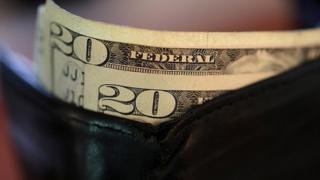- UID
- 20
- Online time
- Hours
- Posts
- Reg time
- 24-8-2017
- Last login
- 1-1-1970
|
|
━━━━━━━━━━━━━━━━━

▼ A few years ago, research assistants "found" 400 wallets in public buildings - banks, theatres, hotels, police stations, post offices and courts - in eight Indian cities.
They handed them in to the security guards and receptionists after claiming to have stumbled upon them, before quickly leaving.
Some of the wallets had no money; others had 230 rupees ($3.30; £2.60) in cash. Each wallet contained three identical business cards, with the owner's name and email address, a grocery list and a key.
A team of researchers posing as the owners of the wallets then waited to be contacted by these security guards and receptionists as part of an experiment to test their honesty.
The wallets were handed over to 314 men and 86 women in the cities of Ahmadabad, Bangalore, Coimbatore, Hyderabad, Jaipur, Kolkata, Mumbai and Delhi.
An impressive 43% of the wallets containing money were reported to their owners. But the figure was much lower for cashless wallets - only 22% were returned.
The results of this fascinating experiment, published recently in Science, prove that people are more honest than we think. Alan Cohn, a behavioural economist at the University of Michigan and one of the lead authors, said this was "something we didn't expect".
"When people stand to heavily profit from engaging in dishonest behaviour, the desire to cheat increases but so do the psychological costs of viewing oneself as a thief - and sometimes the latter will dominate the former," the authors of the study write.
In India, southern cities had both the highest and lowest reporting rates for wallets with money (▪ ▪ ▪)
► Please, continue reading this article here: Source |
Rate
-
View Rating Log
|